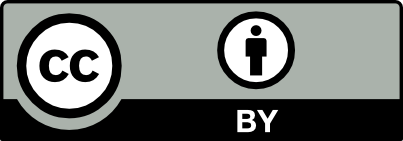The impact of digital tools on learning: A case study from FEM-USMS in Morocco
Mohamed El Kotbi  1
1
Laboratory of Economics and Management of Organizations, Faculty of Economics and Management, Ibn Tofail University, Kenitra, Morocco.
Corresponding author: elkotbi.mohamed9@gmail.com
DOI: 10.5281/zenodo.14796105
The use of information and communication technologies (ICTs) in Moroccan university classrooms has been boosted by the COVID-19 health crisis. Higher education has seen the emergence of digital platforms and e-learning. Digital technology is at the heart of the Moroccan government’s major concerns, and is transforming and developing educational practices to teach differently and increase learning opportunities and access to knowledge for all. The current challenge is to take the digital plunge and offer a more interactive, immersive form of education, encouraging students to participate more actively. Digital technology makes it possible to create new learning situations to develop specific skills. With this in mind, and following the strengthening of face-to-face teaching, the Faculty of Economics and Management at the Sultan Moulay Slimane University (USMS) in Beni Mellal has embraced this dynamic transition to digital by offering students a wide range of rich content via its digital teaching platforms to ensure teaching performance and continuity. This raises two questions: To what extent could educational platforms be a source of educational innovation and facilitate access to knowledge? And what contribution could they make to the individualised regulation of learning and student support? This study investigates how digital technology enhances the educational experiences of students in the Economics and Management stream at FEM-USMS in Beni Mellal. By analyzing student responses to a comprehensive questionnaire, the research aims to understand the perceived benefits and challenges of digital technology and its impact on academic performance. The findings provide valuable understandings into the role of digital tools in higher education and suggest strategies for optimizing their use in Moroccan universities.
Keywords: ICTs, e-learning, digital technology and knowledge.
Published
2024/06/01
—
Section
Research Papers
16359756
{16359756:V9XA4F9J}
1
apa
50
default
898
https://ijtie.com/wp-content/plugins/zotpress/
%7B%22status%22%3A%22success%22%2C%22updateneeded%22%3Afalse%2C%22instance%22%3Afalse%2C%22meta%22%3A%7B%22request_last%22%3A0%2C%22request_next%22%3A0%2C%22used_cache%22%3Atrue%7D%2C%22data%22%3A%5B%7B%22key%22%3A%22V9XA4F9J%22%2C%22library%22%3A%7B%22id%22%3A16359756%7D%2C%22meta%22%3A%7B%22creatorSummary%22%3A%22El%20Kotbi%22%2C%22parsedDate%22%3A%222024-06-01%22%2C%22numChildren%22%3A0%7D%2C%22bib%22%3A%22%26lt%3Bdiv%20class%3D%26quot%3Bcsl-bib-body%26quot%3B%20style%3D%26quot%3Bline-height%3A%202%3B%20padding-left%3A%201em%3B%20text-indent%3A-1em%3B%26quot%3B%26gt%3B%5Cn%20%20%26lt%3Bdiv%20class%3D%26quot%3Bcsl-entry%26quot%3B%26gt%3BEl%20Kotbi%2C%20M.%20%282024%29.%20The%20impact%20of%20digital%20tools%20on%20learning%3A%20A%20case%20study%20from%20FEM-USMS%20in%20Morocco.%20%26lt%3Bi%26gt%3BThe%20International%20Journal%20of%20Technology%2C%20Innovation%2C%20and%20Education%26lt%3B%5C%2Fi%26gt%3B%2C%20%26lt%3Bi%26gt%3B2%26lt%3B%5C%2Fi%26gt%3B%282%29%2C%2066%26%23×2013%3B84.%20%26lt%3Ba%20class%3D%26%23039%3Bzp-DOIURL%26%23039%3B%20href%3D%26%23039%3Bhttps%3A%5C%2F%5C%2Fdoi.org%5C%2F10.5281%5C%2Fzenodo.14796105%26%23039%3B%26gt%3Bhttps%3A%5C%2F%5C%2Fdoi.org%5C%2F10.5281%5C%2Fzenodo.14796105%26lt%3B%5C%2Fa%26gt%3B%26lt%3B%5C%2Fdiv%26gt%3B%5Cn%26lt%3B%5C%2Fdiv%26gt%3B%22%2C%22data%22%3A%7B%22itemType%22%3A%22journalArticle%22%2C%22title%22%3A%22The%20impact%20of%20digital%20tools%20on%20learning%3A%20A%20case%20study%20from%20FEM-USMS%20in%20Morocco%22%2C%22creators%22%3A%5B%7B%22creatorType%22%3A%22author%22%2C%22firstName%22%3A%22Mohamed%22%2C%22lastName%22%3A%22El%20Kotbi%22%7D%5D%2C%22abstractNote%22%3A%22The%20use%20of%20information%20and%20communication%20technologies%20%28ICTs%29%20in%20Moroccan%20university%20classrooms%20has%20been%20boosted%20by%20the%20COVID-19%20health%20crisis.%20Higher%20education%20has%20seen%20the%20emergence%20of%20digital%20platforms%20and%20e-learning.%20Digital%20technology%20is%20at%20the%20heart%20of%20the%20Moroccan%20government%26%23039%3Bs%20major%20concerns%2C%20and%20is%20transforming%20and%20developing%20educational%20practices%20to%20teach%20differently%20and%20increase%20learning%20opportunities%20and%20access%20to%20knowledge%20for%20all.%20The%20current%20challenge%20is%20to%20take%20the%20digital%20plunge%20and%20offer%20a%20more%20interactive%2C%20immersive%20form%20of%20education%2C%20encouraging%20students%20to%20participate%20more%20actively.%20Digital%20technology%20makes%20it%20possible%20to%20create%20new%20learning%20situations%20to%20develop%20specific%20skills.%20With%20this%20in%20mind%2C%20and%20following%20the%20strengthening%20of%20face-to-face%20teaching%2C%20the%20Faculty%20of%20Economics%20and%20Management%20at%20the%20Sultan%20Moulay%20Slimane%20University%20%28USMS%29%20in%20Beni%20Mellal%20has%20embraced%20this%20dynamic%20transition%20to%20digital%20by%20offering%20students%20a%20wide%20range%20of%20rich%20content%20via%20its%20digital%20teaching%20platforms%20to%20ensure%20teaching%20performance%20and%20continuity.%20This%20raises%20two%20questions%3A%20To%20what%20extent%20could%20educational%20platforms%20be%20a%20source%20of%20educational%20innovation%20and%20facilitate%20access%20to%20knowledge%3F%20And%20what%20contribution%20could%20they%20make%20to%20the%20individualised%20regulation%20of%20learning%20and%20student%20support%3F%20This%20study%20investigates%20how%20digital%20technology%20enhances%20the%20educational%20experiences%20of%20students%20in%20the%20Economics%20and%20Management%20stream%20at%20FEM-USMS%20in%20Beni%20Mellal.%20By%20analyzing%20student%20responses%20to%20a%20comprehensive%20questionnaire%2C%20the%20research%20aims%20to%20understand%20the%20perceived%20benefits%20and%20challenges%20of%20digital%20technology%20and%20its%20impact%20on%20academic%20performance.%20The%20findings%20provide%20valuable%20understandings%20into%20the%20role%20of%20digital%20tools%20in%20higher%20education%20and%20suggest%20strategies%20for%20optimizing%20their%20use%20in%20Moroccan%20universities.%22%2C%22date%22%3A%222024-06-01%22%2C%22section%22%3A%22%22%2C%22partNumber%22%3A%22%22%2C%22partTitle%22%3A%22%22%2C%22DOI%22%3A%2210.5281%5C%2Fzenodo.14796105%22%2C%22citationKey%22%3A%22%22%2C%22url%22%3A%22https%3A%5C%2F%5C%2Fijtie.com%5C%2Fv202%5C%2Fn72%22%2C%22PMID%22%3A%22%22%2C%22PMCID%22%3A%22%22%2C%22ISSN%22%3A%222820-7521%22%2C%22language%22%3A%22en%22%2C%22collections%22%3A%5B%5D%2C%22dateModified%22%3A%222025-03-24T17%3A21%3A13Z%22%7D%7D%5D%7D
El Kotbi, M. (2024). The impact of digital tools on learning: A case study from FEM-USMS in Morocco.
The International Journal of Technology, Innovation, and Education,
2(2), 66–84.
https://doi.org/10.5281/zenodo.14796105
Chicago
MLA
IEEE
Harvard
Vancouver
APA
Chicago
Chicago
MLA
IEEE
Harvard
Vancouver
APA
16359756
{16359756:V9XA4F9J}
1
chicago-author-date
50
default
898
https://ijtie.com/wp-content/plugins/zotpress/
%7B%22status%22%3A%22success%22%2C%22updateneeded%22%3Afalse%2C%22instance%22%3Afalse%2C%22meta%22%3A%7B%22request_last%22%3A0%2C%22request_next%22%3A0%2C%22used_cache%22%3Atrue%7D%2C%22data%22%3A%5B%7B%22key%22%3A%22V9XA4F9J%22%2C%22library%22%3A%7B%22id%22%3A16359756%7D%2C%22meta%22%3A%7B%22creatorSummary%22%3A%22El%20Kotbi%22%2C%22parsedDate%22%3A%222024-06-01%22%2C%22numChildren%22%3A0%7D%2C%22bib%22%3A%22%26lt%3Bdiv%20class%3D%26quot%3Bcsl-bib-body%26quot%3B%20style%3D%26quot%3Bline-height%3A%201.35%3B%20padding-left%3A%201em%3B%20text-indent%3A-1em%3B%26quot%3B%26gt%3B%5Cn%20%20%26lt%3Bdiv%20class%3D%26quot%3Bcsl-entry%26quot%3B%26gt%3BEl%20Kotbi%2C%20Mohamed.%202024.%20%26%23x201C%3BThe%20Impact%20of%20Digital%20Tools%20on%20Learning%3A%20A%20Case%20Study%20from%20FEM-USMS%20in%20Morocco.%26%23x201D%3B%20%26lt%3Bi%26gt%3BThe%20International%20Journal%20of%20Technology%2C%20Innovation%2C%20and%20Education%26lt%3B%5C%2Fi%26gt%3B%202%20%282%29%3A%2066%26%23×2013%3B84.%20%26lt%3Ba%20class%3D%26%23039%3Bzp-DOIURL%26%23039%3B%20href%3D%26%23039%3Bhttps%3A%5C%2F%5C%2Fdoi.org%5C%2F10.5281%5C%2Fzenodo.14796105%26%23039%3B%26gt%3Bhttps%3A%5C%2F%5C%2Fdoi.org%5C%2F10.5281%5C%2Fzenodo.14796105%26lt%3B%5C%2Fa%26gt%3B.%26lt%3B%5C%2Fdiv%26gt%3B%5Cn%26lt%3B%5C%2Fdiv%26gt%3B%22%2C%22data%22%3A%7B%22itemType%22%3A%22journalArticle%22%2C%22title%22%3A%22The%20impact%20of%20digital%20tools%20on%20learning%3A%20A%20case%20study%20from%20FEM-USMS%20in%20Morocco%22%2C%22creators%22%3A%5B%7B%22creatorType%22%3A%22author%22%2C%22firstName%22%3A%22Mohamed%22%2C%22lastName%22%3A%22El%20Kotbi%22%7D%5D%2C%22abstractNote%22%3A%22The%20use%20of%20information%20and%20communication%20technologies%20%28ICTs%29%20in%20Moroccan%20university%20classrooms%20has%20been%20boosted%20by%20the%20COVID-19%20health%20crisis.%20Higher%20education%20has%20seen%20the%20emergence%20of%20digital%20platforms%20and%20e-learning.%20Digital%20technology%20is%20at%20the%20heart%20of%20the%20Moroccan%20government%26%23039%3Bs%20major%20concerns%2C%20and%20is%20transforming%20and%20developing%20educational%20practices%20to%20teach%20differently%20and%20increase%20learning%20opportunities%20and%20access%20to%20knowledge%20for%20all.%20The%20current%20challenge%20is%20to%20take%20the%20digital%20plunge%20and%20offer%20a%20more%20interactive%2C%20immersive%20form%20of%20education%2C%20encouraging%20students%20to%20participate%20more%20actively.%20Digital%20technology%20makes%20it%20possible%20to%20create%20new%20learning%20situations%20to%20develop%20specific%20skills.%20With%20this%20in%20mind%2C%20and%20following%20the%20strengthening%20of%20face-to-face%20teaching%2C%20the%20Faculty%20of%20Economics%20and%20Management%20at%20the%20Sultan%20Moulay%20Slimane%20University%20%28USMS%29%20in%20Beni%20Mellal%20has%20embraced%20this%20dynamic%20transition%20to%20digital%20by%20offering%20students%20a%20wide%20range%20of%20rich%20content%20via%20its%20digital%20teaching%20platforms%20to%20ensure%20teaching%20performance%20and%20continuity.%20This%20raises%20two%20questions%3A%20To%20what%20extent%20could%20educational%20platforms%20be%20a%20source%20of%20educational%20innovation%20and%20facilitate%20access%20to%20knowledge%3F%20And%20what%20contribution%20could%20they%20make%20to%20the%20individualised%20regulation%20of%20learning%20and%20student%20support%3F%20This%20study%20investigates%20how%20digital%20technology%20enhances%20the%20educational%20experiences%20of%20students%20in%20the%20Economics%20and%20Management%20stream%20at%20FEM-USMS%20in%20Beni%20Mellal.%20By%20analyzing%20student%20responses%20to%20a%20comprehensive%20questionnaire%2C%20the%20research%20aims%20to%20understand%20the%20perceived%20benefits%20and%20challenges%20of%20digital%20technology%20and%20its%20impact%20on%20academic%20performance.%20The%20findings%20provide%20valuable%20understandings%20into%20the%20role%20of%20digital%20tools%20in%20higher%20education%20and%20suggest%20strategies%20for%20optimizing%20their%20use%20in%20Moroccan%20universities.%22%2C%22date%22%3A%222024-06-01%22%2C%22section%22%3A%22%22%2C%22partNumber%22%3A%22%22%2C%22partTitle%22%3A%22%22%2C%22DOI%22%3A%2210.5281%5C%2Fzenodo.14796105%22%2C%22citationKey%22%3A%22%22%2C%22url%22%3A%22https%3A%5C%2F%5C%2Fijtie.com%5C%2Fv202%5C%2Fn72%22%2C%22PMID%22%3A%22%22%2C%22PMCID%22%3A%22%22%2C%22ISSN%22%3A%222820-7521%22%2C%22language%22%3A%22en%22%2C%22collections%22%3A%5B%5D%2C%22dateModified%22%3A%222025-03-24T17%3A21%3A13Z%22%7D%7D%5D%7D
El Kotbi, Mohamed. 2024. “The Impact of Digital Tools on Learning: A Case Study from FEM-USMS in Morocco.”
The International Journal of Technology, Innovation, and Education 2 (2): 66–84.
https://doi.org/10.5281/zenodo.14796105.
16359756
{16359756:V9XA4F9J}
1
modern-language-association
50
default
898
https://ijtie.com/wp-content/plugins/zotpress/
%7B%22status%22%3A%22success%22%2C%22updateneeded%22%3Afalse%2C%22instance%22%3Afalse%2C%22meta%22%3A%7B%22request_last%22%3A0%2C%22request_next%22%3A0%2C%22used_cache%22%3Atrue%7D%2C%22data%22%3A%5B%7B%22key%22%3A%22V9XA4F9J%22%2C%22library%22%3A%7B%22id%22%3A16359756%7D%2C%22meta%22%3A%7B%22creatorSummary%22%3A%22El%20Kotbi%22%2C%22parsedDate%22%3A%222024-06-01%22%2C%22numChildren%22%3A0%7D%2C%22bib%22%3A%22%26lt%3Bdiv%20class%3D%26quot%3Bcsl-bib-body%26quot%3B%20style%3D%26quot%3Bline-height%3A%202%3B%20padding-left%3A%201em%3B%20text-indent%3A-1em%3B%26quot%3B%26gt%3B%5Cn%20%20%26lt%3Bdiv%20class%3D%26quot%3Bcsl-entry%26quot%3B%26gt%3BEl%20Kotbi%2C%20Mohamed.%20%26%23x201C%3BThe%20Impact%20of%20Digital%20Tools%20on%20Learning%3A%20A%20Case%20Study%20from%20FEM-USMS%20in%20Morocco.%26%23x201D%3B%20%26lt%3Bi%26gt%3BThe%20International%20Journal%20of%20Technology%2C%20Innovation%2C%20and%20Education%26lt%3B%5C%2Fi%26gt%3B%2C%20vol.%202%2C%20no.%202%2C%20June%202024%2C%20pp.%2066%26%23×2013%3B84%2C%20%26lt%3Ba%20class%3D%26%23039%3Bzp-DOIURL%26%23039%3B%20href%3D%26%23039%3Bhttps%3A%5C%2F%5C%2Fdoi.org%5C%2F10.5281%5C%2Fzenodo.14796105%26%23039%3B%26gt%3Bhttps%3A%5C%2F%5C%2Fdoi.org%5C%2F10.5281%5C%2Fzenodo.14796105%26lt%3B%5C%2Fa%26gt%3B.%26lt%3B%5C%2Fdiv%26gt%3B%5Cn%26lt%3B%5C%2Fdiv%26gt%3B%22%2C%22data%22%3A%7B%22itemType%22%3A%22journalArticle%22%2C%22title%22%3A%22The%20impact%20of%20digital%20tools%20on%20learning%3A%20A%20case%20study%20from%20FEM-USMS%20in%20Morocco%22%2C%22creators%22%3A%5B%7B%22creatorType%22%3A%22author%22%2C%22firstName%22%3A%22Mohamed%22%2C%22lastName%22%3A%22El%20Kotbi%22%7D%5D%2C%22abstractNote%22%3A%22The%20use%20of%20information%20and%20communication%20technologies%20%28ICTs%29%20in%20Moroccan%20university%20classrooms%20has%20been%20boosted%20by%20the%20COVID-19%20health%20crisis.%20Higher%20education%20has%20seen%20the%20emergence%20of%20digital%20platforms%20and%20e-learning.%20Digital%20technology%20is%20at%20the%20heart%20of%20the%20Moroccan%20government%26%23039%3Bs%20major%20concerns%2C%20and%20is%20transforming%20and%20developing%20educational%20practices%20to%20teach%20differently%20and%20increase%20learning%20opportunities%20and%20access%20to%20knowledge%20for%20all.%20The%20current%20challenge%20is%20to%20take%20the%20digital%20plunge%20and%20offer%20a%20more%20interactive%2C%20immersive%20form%20of%20education%2C%20encouraging%20students%20to%20participate%20more%20actively.%20Digital%20technology%20makes%20it%20possible%20to%20create%20new%20learning%20situations%20to%20develop%20specific%20skills.%20With%20this%20in%20mind%2C%20and%20following%20the%20strengthening%20of%20face-to-face%20teaching%2C%20the%20Faculty%20of%20Economics%20and%20Management%20at%20the%20Sultan%20Moulay%20Slimane%20University%20%28USMS%29%20in%20Beni%20Mellal%20has%20embraced%20this%20dynamic%20transition%20to%20digital%20by%20offering%20students%20a%20wide%20range%20of%20rich%20content%20via%20its%20digital%20teaching%20platforms%20to%20ensure%20teaching%20performance%20and%20continuity.%20This%20raises%20two%20questions%3A%20To%20what%20extent%20could%20educational%20platforms%20be%20a%20source%20of%20educational%20innovation%20and%20facilitate%20access%20to%20knowledge%3F%20And%20what%20contribution%20could%20they%20make%20to%20the%20individualised%20regulation%20of%20learning%20and%20student%20support%3F%20This%20study%20investigates%20how%20digital%20technology%20enhances%20the%20educational%20experiences%20of%20students%20in%20the%20Economics%20and%20Management%20stream%20at%20FEM-USMS%20in%20Beni%20Mellal.%20By%20analyzing%20student%20responses%20to%20a%20comprehensive%20questionnaire%2C%20the%20research%20aims%20to%20understand%20the%20perceived%20benefits%20and%20challenges%20of%20digital%20technology%20and%20its%20impact%20on%20academic%20performance.%20The%20findings%20provide%20valuable%20understandings%20into%20the%20role%20of%20digital%20tools%20in%20higher%20education%20and%20suggest%20strategies%20for%20optimizing%20their%20use%20in%20Moroccan%20universities.%22%2C%22date%22%3A%222024-06-01%22%2C%22section%22%3A%22%22%2C%22partNumber%22%3A%22%22%2C%22partTitle%22%3A%22%22%2C%22DOI%22%3A%2210.5281%5C%2Fzenodo.14796105%22%2C%22citationKey%22%3A%22%22%2C%22url%22%3A%22https%3A%5C%2F%5C%2Fijtie.com%5C%2Fv202%5C%2Fn72%22%2C%22PMID%22%3A%22%22%2C%22PMCID%22%3A%22%22%2C%22ISSN%22%3A%222820-7521%22%2C%22language%22%3A%22en%22%2C%22collections%22%3A%5B%5D%2C%22dateModified%22%3A%222025-03-24T17%3A21%3A13Z%22%7D%7D%5D%7D
El Kotbi, Mohamed. “The Impact of Digital Tools on Learning: A Case Study from FEM-USMS in Morocco.”
The International Journal of Technology, Innovation, and Education, vol. 2, no. 2, June 2024, pp. 66–84,
https://doi.org/10.5281/zenodo.14796105.
16359756
{16359756:V9XA4F9J}
1
ieee
50
default
898
https://ijtie.com/wp-content/plugins/zotpress/
%7B%22status%22%3A%22success%22%2C%22updateneeded%22%3Afalse%2C%22instance%22%3Afalse%2C%22meta%22%3A%7B%22request_last%22%3A0%2C%22request_next%22%3A0%2C%22used_cache%22%3Atrue%7D%2C%22data%22%3A%5B%7B%22key%22%3A%22V9XA4F9J%22%2C%22library%22%3A%7B%22id%22%3A16359756%7D%2C%22meta%22%3A%7B%22creatorSummary%22%3A%22El%20Kotbi%22%2C%22parsedDate%22%3A%222024-06-01%22%2C%22numChildren%22%3A0%7D%2C%22bib%22%3A%22%26lt%3Bdiv%20class%3D%26quot%3Bcsl-bib-body%26quot%3B%20style%3D%26quot%3Bline-height%3A%201.35%3B%20%26quot%3B%26gt%3B%5Cn%20%20%26lt%3Bdiv%20class%3D%26quot%3Bcsl-entry%26quot%3B%20style%3D%26quot%3Bclear%3A%20left%3B%20%26quot%3B%26gt%3B%5Cn%20%20%20%20%26lt%3Bdiv%20class%3D%26quot%3Bcsl-left-margin%26quot%3B%20style%3D%26quot%3Bfloat%3A%20left%3B%20padding-right%3A%200.5em%3B%20text-align%3A%20right%3B%20width%3A%201em%3B%26quot%3B%26gt%3B%5B1%5D%26lt%3B%5C%2Fdiv%26gt%3B%26lt%3Bdiv%20class%3D%26quot%3Bcsl-right-inline%26quot%3B%20style%3D%26quot%3Bmargin%3A%200%20.4em%200%201.5em%3B%26quot%3B%26gt%3BM.%20El%20Kotbi%2C%20%26%23x201C%3BThe%20impact%20of%20digital%20tools%20on%20learning%3A%20A%20case%20study%20from%20FEM-USMS%20in%20Morocco%2C%26%23x201D%3B%20%26lt%3Bi%26gt%3BThe%20International%20Journal%20of%20Technology%2C%20Innovation%2C%20and%20Education%26lt%3B%5C%2Fi%26gt%3B%2C%20vol.%202%2C%20no.%202%2C%20pp.%2066%26%23×2013%3B84%2C%20Jun.%202024%2C%20doi%3A%2010.5281%5C%2Fzenodo.14796105.%26lt%3B%5C%2Fdiv%26gt%3B%5Cn%20%20%26lt%3B%5C%2Fdiv%26gt%3B%5Cn%26lt%3B%5C%2Fdiv%26gt%3B%22%2C%22data%22%3A%7B%22itemType%22%3A%22journalArticle%22%2C%22title%22%3A%22The%20impact%20of%20digital%20tools%20on%20learning%3A%20A%20case%20study%20from%20FEM-USMS%20in%20Morocco%22%2C%22creators%22%3A%5B%7B%22creatorType%22%3A%22author%22%2C%22firstName%22%3A%22Mohamed%22%2C%22lastName%22%3A%22El%20Kotbi%22%7D%5D%2C%22abstractNote%22%3A%22The%20use%20of%20information%20and%20communication%20technologies%20%28ICTs%29%20in%20Moroccan%20university%20classrooms%20has%20been%20boosted%20by%20the%20COVID-19%20health%20crisis.%20Higher%20education%20has%20seen%20the%20emergence%20of%20digital%20platforms%20and%20e-learning.%20Digital%20technology%20is%20at%20the%20heart%20of%20the%20Moroccan%20government%26%23039%3Bs%20major%20concerns%2C%20and%20is%20transforming%20and%20developing%20educational%20practices%20to%20teach%20differently%20and%20increase%20learning%20opportunities%20and%20access%20to%20knowledge%20for%20all.%20The%20current%20challenge%20is%20to%20take%20the%20digital%20plunge%20and%20offer%20a%20more%20interactive%2C%20immersive%20form%20of%20education%2C%20encouraging%20students%20to%20participate%20more%20actively.%20Digital%20technology%20makes%20it%20possible%20to%20create%20new%20learning%20situations%20to%20develop%20specific%20skills.%20With%20this%20in%20mind%2C%20and%20following%20the%20strengthening%20of%20face-to-face%20teaching%2C%20the%20Faculty%20of%20Economics%20and%20Management%20at%20the%20Sultan%20Moulay%20Slimane%20University%20%28USMS%29%20in%20Beni%20Mellal%20has%20embraced%20this%20dynamic%20transition%20to%20digital%20by%20offering%20students%20a%20wide%20range%20of%20rich%20content%20via%20its%20digital%20teaching%20platforms%20to%20ensure%20teaching%20performance%20and%20continuity.%20This%20raises%20two%20questions%3A%20To%20what%20extent%20could%20educational%20platforms%20be%20a%20source%20of%20educational%20innovation%20and%20facilitate%20access%20to%20knowledge%3F%20And%20what%20contribution%20could%20they%20make%20to%20the%20individualised%20regulation%20of%20learning%20and%20student%20support%3F%20This%20study%20investigates%20how%20digital%20technology%20enhances%20the%20educational%20experiences%20of%20students%20in%20the%20Economics%20and%20Management%20stream%20at%20FEM-USMS%20in%20Beni%20Mellal.%20By%20analyzing%20student%20responses%20to%20a%20comprehensive%20questionnaire%2C%20the%20research%20aims%20to%20understand%20the%20perceived%20benefits%20and%20challenges%20of%20digital%20technology%20and%20its%20impact%20on%20academic%20performance.%20The%20findings%20provide%20valuable%20understandings%20into%20the%20role%20of%20digital%20tools%20in%20higher%20education%20and%20suggest%20strategies%20for%20optimizing%20their%20use%20in%20Moroccan%20universities.%22%2C%22date%22%3A%222024-06-01%22%2C%22section%22%3A%22%22%2C%22partNumber%22%3A%22%22%2C%22partTitle%22%3A%22%22%2C%22DOI%22%3A%2210.5281%5C%2Fzenodo.14796105%22%2C%22citationKey%22%3A%22%22%2C%22url%22%3A%22https%3A%5C%2F%5C%2Fijtie.com%5C%2Fv202%5C%2Fn72%22%2C%22PMID%22%3A%22%22%2C%22PMCID%22%3A%22%22%2C%22ISSN%22%3A%222820-7521%22%2C%22language%22%3A%22en%22%2C%22collections%22%3A%5B%5D%2C%22dateModified%22%3A%222025-03-24T17%3A21%3A13Z%22%7D%7D%5D%7D
[1]
M. El Kotbi, “The impact of digital tools on learning: A case study from FEM-USMS in Morocco,” The International Journal of Technology, Innovation, and Education, vol. 2, no. 2, pp. 66–84, Jun. 2024, doi: 10.5281/zenodo.14796105.
16359756
{16359756:V9XA4F9J}
1
harvard1
50
default
898
https://ijtie.com/wp-content/plugins/zotpress/
%7B%22status%22%3A%22success%22%2C%22updateneeded%22%3Afalse%2C%22instance%22%3Afalse%2C%22meta%22%3A%7B%22request_last%22%3A0%2C%22request_next%22%3A0%2C%22used_cache%22%3Atrue%7D%2C%22data%22%3A%5B%7B%22key%22%3A%22V9XA4F9J%22%2C%22library%22%3A%7B%22id%22%3A16359756%7D%2C%22meta%22%3A%7B%22creatorSummary%22%3A%22El%20Kotbi%22%2C%22parsedDate%22%3A%222024-06-01%22%2C%22numChildren%22%3A0%7D%2C%22bib%22%3A%22%26lt%3Bdiv%20class%3D%26quot%3Bcsl-bib-body%26quot%3B%20style%3D%26quot%3Bline-height%3A%201.35%3B%20%26quot%3B%26gt%3B%5Cn%20%20%26lt%3Bdiv%20class%3D%26quot%3Bcsl-entry%26quot%3B%26gt%3BEl%20Kotbi%2C%20M.%20%282024%29%20%26%23x201C%3BThe%20impact%20of%20digital%20tools%20on%20learning%3A%20A%20case%20study%20from%20FEM-USMS%20in%20Morocco%2C%26%23x201D%3B%20%26lt%3Bi%26gt%3BThe%20International%20Journal%20of%20Technology%2C%20Innovation%2C%20and%20Education%26lt%3B%5C%2Fi%26gt%3B%2C%202%282%29%2C%20pp.%2066%26%23×2013%3B84.%20Available%20at%3A%20%26lt%3Ba%20class%3D%26%23039%3Bzp-DOIURL%26%23039%3B%20href%3D%26%23039%3Bhttps%3A%5C%2F%5C%2Fdoi.org%5C%2F10.5281%5C%2Fzenodo.14796105%26%23039%3B%26gt%3Bhttps%3A%5C%2F%5C%2Fdoi.org%5C%2F10.5281%5C%2Fzenodo.14796105%26lt%3B%5C%2Fa%26gt%3B.%26lt%3B%5C%2Fdiv%26gt%3B%5Cn%26lt%3B%5C%2Fdiv%26gt%3B%22%2C%22data%22%3A%7B%22itemType%22%3A%22journalArticle%22%2C%22title%22%3A%22The%20impact%20of%20digital%20tools%20on%20learning%3A%20A%20case%20study%20from%20FEM-USMS%20in%20Morocco%22%2C%22creators%22%3A%5B%7B%22creatorType%22%3A%22author%22%2C%22firstName%22%3A%22Mohamed%22%2C%22lastName%22%3A%22El%20Kotbi%22%7D%5D%2C%22abstractNote%22%3A%22The%20use%20of%20information%20and%20communication%20technologies%20%28ICTs%29%20in%20Moroccan%20university%20classrooms%20has%20been%20boosted%20by%20the%20COVID-19%20health%20crisis.%20Higher%20education%20has%20seen%20the%20emergence%20of%20digital%20platforms%20and%20e-learning.%20Digital%20technology%20is%20at%20the%20heart%20of%20the%20Moroccan%20government%26%23039%3Bs%20major%20concerns%2C%20and%20is%20transforming%20and%20developing%20educational%20practices%20to%20teach%20differently%20and%20increase%20learning%20opportunities%20and%20access%20to%20knowledge%20for%20all.%20The%20current%20challenge%20is%20to%20take%20the%20digital%20plunge%20and%20offer%20a%20more%20interactive%2C%20immersive%20form%20of%20education%2C%20encouraging%20students%20to%20participate%20more%20actively.%20Digital%20technology%20makes%20it%20possible%20to%20create%20new%20learning%20situations%20to%20develop%20specific%20skills.%20With%20this%20in%20mind%2C%20and%20following%20the%20strengthening%20of%20face-to-face%20teaching%2C%20the%20Faculty%20of%20Economics%20and%20Management%20at%20the%20Sultan%20Moulay%20Slimane%20University%20%28USMS%29%20in%20Beni%20Mellal%20has%20embraced%20this%20dynamic%20transition%20to%20digital%20by%20offering%20students%20a%20wide%20range%20of%20rich%20content%20via%20its%20digital%20teaching%20platforms%20to%20ensure%20teaching%20performance%20and%20continuity.%20This%20raises%20two%20questions%3A%20To%20what%20extent%20could%20educational%20platforms%20be%20a%20source%20of%20educational%20innovation%20and%20facilitate%20access%20to%20knowledge%3F%20And%20what%20contribution%20could%20they%20make%20to%20the%20individualised%20regulation%20of%20learning%20and%20student%20support%3F%20This%20study%20investigates%20how%20digital%20technology%20enhances%20the%20educational%20experiences%20of%20students%20in%20the%20Economics%20and%20Management%20stream%20at%20FEM-USMS%20in%20Beni%20Mellal.%20By%20analyzing%20student%20responses%20to%20a%20comprehensive%20questionnaire%2C%20the%20research%20aims%20to%20understand%20the%20perceived%20benefits%20and%20challenges%20of%20digital%20technology%20and%20its%20impact%20on%20academic%20performance.%20The%20findings%20provide%20valuable%20understandings%20into%20the%20role%20of%20digital%20tools%20in%20higher%20education%20and%20suggest%20strategies%20for%20optimizing%20their%20use%20in%20Moroccan%20universities.%22%2C%22date%22%3A%222024-06-01%22%2C%22section%22%3A%22%22%2C%22partNumber%22%3A%22%22%2C%22partTitle%22%3A%22%22%2C%22DOI%22%3A%2210.5281%5C%2Fzenodo.14796105%22%2C%22citationKey%22%3A%22%22%2C%22url%22%3A%22https%3A%5C%2F%5C%2Fijtie.com%5C%2Fv202%5C%2Fn72%22%2C%22PMID%22%3A%22%22%2C%22PMCID%22%3A%22%22%2C%22ISSN%22%3A%222820-7521%22%2C%22language%22%3A%22en%22%2C%22collections%22%3A%5B%5D%2C%22dateModified%22%3A%222025-03-24T17%3A21%3A13Z%22%7D%7D%5D%7D
El Kotbi, M. (2024) “The impact of digital tools on learning: A case study from FEM-USMS in Morocco,”
The International Journal of Technology, Innovation, and Education, 2(2), pp. 66–84. Available at:
https://doi.org/10.5281/zenodo.14796105.
16359756
{16359756:V9XA4F9J}
1
vancouver-author-date
50
default
898
https://ijtie.com/wp-content/plugins/zotpress/
%7B%22status%22%3A%22success%22%2C%22updateneeded%22%3Afalse%2C%22instance%22%3Afalse%2C%22meta%22%3A%7B%22request_last%22%3A0%2C%22request_next%22%3A0%2C%22used_cache%22%3Atrue%7D%2C%22data%22%3A%5B%7B%22key%22%3A%22V9XA4F9J%22%2C%22library%22%3A%7B%22id%22%3A16359756%7D%2C%22meta%22%3A%7B%22creatorSummary%22%3A%22El%20Kotbi%22%2C%22parsedDate%22%3A%222024-06-01%22%2C%22numChildren%22%3A0%7D%2C%22bib%22%3A%22%26lt%3Bdiv%20class%3D%26quot%3Bcsl-bib-body%26quot%3B%20style%3D%26quot%3Bline-height%3A%201.35%3B%20padding-left%3A%201em%3B%20text-indent%3A-1em%3B%26quot%3B%26gt%3B%5Cn%20%20%26lt%3Bdiv%20class%3D%26quot%3Bcsl-entry%26quot%3B%26gt%3BEl%20Kotbi%20M.%20The%20impact%20of%20digital%20tools%20on%20learning%3A%20A%20case%20study%20from%20FEM-USMS%20in%20Morocco.%20The%20International%20Journal%20of%20Technology%2C%20Innovation%2C%20and%20Education%20%5BInternet%5D.%202024%20June%201%3B2%282%29%3A66%26%23×2013%3B84.%20Available%20from%3A%20%26lt%3Ba%20class%3D%26%23039%3Bzp-ItemURL%26%23039%3B%20href%3D%26%23039%3Bhttps%3A%5C%2F%5C%2Fijtie.com%5C%2Fv202%5C%2Fn72%26%23039%3B%26gt%3Bhttps%3A%5C%2F%5C%2Fijtie.com%5C%2Fv202%5C%2Fn72%26lt%3B%5C%2Fa%26gt%3B%26lt%3B%5C%2Fdiv%26gt%3B%5Cn%26lt%3B%5C%2Fdiv%26gt%3B%22%2C%22data%22%3A%7B%22itemType%22%3A%22journalArticle%22%2C%22title%22%3A%22The%20impact%20of%20digital%20tools%20on%20learning%3A%20A%20case%20study%20from%20FEM-USMS%20in%20Morocco%22%2C%22creators%22%3A%5B%7B%22creatorType%22%3A%22author%22%2C%22firstName%22%3A%22Mohamed%22%2C%22lastName%22%3A%22El%20Kotbi%22%7D%5D%2C%22abstractNote%22%3A%22The%20use%20of%20information%20and%20communication%20technologies%20%28ICTs%29%20in%20Moroccan%20university%20classrooms%20has%20been%20boosted%20by%20the%20COVID-19%20health%20crisis.%20Higher%20education%20has%20seen%20the%20emergence%20of%20digital%20platforms%20and%20e-learning.%20Digital%20technology%20is%20at%20the%20heart%20of%20the%20Moroccan%20government%26%23039%3Bs%20major%20concerns%2C%20and%20is%20transforming%20and%20developing%20educational%20practices%20to%20teach%20differently%20and%20increase%20learning%20opportunities%20and%20access%20to%20knowledge%20for%20all.%20The%20current%20challenge%20is%20to%20take%20the%20digital%20plunge%20and%20offer%20a%20more%20interactive%2C%20immersive%20form%20of%20education%2C%20encouraging%20students%20to%20participate%20more%20actively.%20Digital%20technology%20makes%20it%20possible%20to%20create%20new%20learning%20situations%20to%20develop%20specific%20skills.%20With%20this%20in%20mind%2C%20and%20following%20the%20strengthening%20of%20face-to-face%20teaching%2C%20the%20Faculty%20of%20Economics%20and%20Management%20at%20the%20Sultan%20Moulay%20Slimane%20University%20%28USMS%29%20in%20Beni%20Mellal%20has%20embraced%20this%20dynamic%20transition%20to%20digital%20by%20offering%20students%20a%20wide%20range%20of%20rich%20content%20via%20its%20digital%20teaching%20platforms%20to%20ensure%20teaching%20performance%20and%20continuity.%20This%20raises%20two%20questions%3A%20To%20what%20extent%20could%20educational%20platforms%20be%20a%20source%20of%20educational%20innovation%20and%20facilitate%20access%20to%20knowledge%3F%20And%20what%20contribution%20could%20they%20make%20to%20the%20individualised%20regulation%20of%20learning%20and%20student%20support%3F%20This%20study%20investigates%20how%20digital%20technology%20enhances%20the%20educational%20experiences%20of%20students%20in%20the%20Economics%20and%20Management%20stream%20at%20FEM-USMS%20in%20Beni%20Mellal.%20By%20analyzing%20student%20responses%20to%20a%20comprehensive%20questionnaire%2C%20the%20research%20aims%20to%20understand%20the%20perceived%20benefits%20and%20challenges%20of%20digital%20technology%20and%20its%20impact%20on%20academic%20performance.%20The%20findings%20provide%20valuable%20understandings%20into%20the%20role%20of%20digital%20tools%20in%20higher%20education%20and%20suggest%20strategies%20for%20optimizing%20their%20use%20in%20Moroccan%20universities.%22%2C%22date%22%3A%222024-06-01%22%2C%22section%22%3A%22%22%2C%22partNumber%22%3A%22%22%2C%22partTitle%22%3A%22%22%2C%22DOI%22%3A%2210.5281%5C%2Fzenodo.14796105%22%2C%22citationKey%22%3A%22%22%2C%22url%22%3A%22https%3A%5C%2F%5C%2Fijtie.com%5C%2Fv202%5C%2Fn72%22%2C%22PMID%22%3A%22%22%2C%22PMCID%22%3A%22%22%2C%22ISSN%22%3A%222820-7521%22%2C%22language%22%3A%22en%22%2C%22collections%22%3A%5B%5D%2C%22dateModified%22%3A%222025-03-24T17%3A21%3A13Z%22%7D%7D%5D%7D
El Kotbi M. The impact of digital tools on learning: A case study from FEM-USMS in Morocco. The International Journal of Technology, Innovation, and Education [Internet]. 2024 June 1;2(2):66–84. Available from:
https://ijtie.com/v202/n72
16359756
{16359756:V9XA4F9J}
1
apa
50
default
898
https://ijtie.com/wp-content/plugins/zotpress/
%7B%22status%22%3A%22success%22%2C%22updateneeded%22%3Afalse%2C%22instance%22%3Afalse%2C%22meta%22%3A%7B%22request_last%22%3A0%2C%22request_next%22%3A0%2C%22used_cache%22%3Atrue%7D%2C%22data%22%3A%5B%7B%22key%22%3A%22V9XA4F9J%22%2C%22library%22%3A%7B%22id%22%3A16359756%7D%2C%22meta%22%3A%7B%22creatorSummary%22%3A%22El%20Kotbi%22%2C%22parsedDate%22%3A%222024-06-01%22%2C%22numChildren%22%3A0%7D%2C%22bib%22%3A%22%26lt%3Bdiv%20class%3D%26quot%3Bcsl-bib-body%26quot%3B%20style%3D%26quot%3Bline-height%3A%202%3B%20padding-left%3A%201em%3B%20text-indent%3A-1em%3B%26quot%3B%26gt%3B%5Cn%20%20%26lt%3Bdiv%20class%3D%26quot%3Bcsl-entry%26quot%3B%26gt%3BEl%20Kotbi%2C%20M.%20%282024%29.%20The%20impact%20of%20digital%20tools%20on%20learning%3A%20A%20case%20study%20from%20FEM-USMS%20in%20Morocco.%20%26lt%3Bi%26gt%3BThe%20International%20Journal%20of%20Technology%2C%20Innovation%2C%20and%20Education%26lt%3B%5C%2Fi%26gt%3B%2C%20%26lt%3Bi%26gt%3B2%26lt%3B%5C%2Fi%26gt%3B%282%29%2C%2066%26%23×2013%3B84.%20%26lt%3Ba%20class%3D%26%23039%3Bzp-DOIURL%26%23039%3B%20href%3D%26%23039%3Bhttps%3A%5C%2F%5C%2Fdoi.org%5C%2F10.5281%5C%2Fzenodo.14796105%26%23039%3B%26gt%3Bhttps%3A%5C%2F%5C%2Fdoi.org%5C%2F10.5281%5C%2Fzenodo.14796105%26lt%3B%5C%2Fa%26gt%3B%26lt%3B%5C%2Fdiv%26gt%3B%5Cn%26lt%3B%5C%2Fdiv%26gt%3B%22%2C%22data%22%3A%7B%22itemType%22%3A%22journalArticle%22%2C%22title%22%3A%22The%20impact%20of%20digital%20tools%20on%20learning%3A%20A%20case%20study%20from%20FEM-USMS%20in%20Morocco%22%2C%22creators%22%3A%5B%7B%22creatorType%22%3A%22author%22%2C%22firstName%22%3A%22Mohamed%22%2C%22lastName%22%3A%22El%20Kotbi%22%7D%5D%2C%22abstractNote%22%3A%22The%20use%20of%20information%20and%20communication%20technologies%20%28ICTs%29%20in%20Moroccan%20university%20classrooms%20has%20been%20boosted%20by%20the%20COVID-19%20health%20crisis.%20Higher%20education%20has%20seen%20the%20emergence%20of%20digital%20platforms%20and%20e-learning.%20Digital%20technology%20is%20at%20the%20heart%20of%20the%20Moroccan%20government%26%23039%3Bs%20major%20concerns%2C%20and%20is%20transforming%20and%20developing%20educational%20practices%20to%20teach%20differently%20and%20increase%20learning%20opportunities%20and%20access%20to%20knowledge%20for%20all.%20The%20current%20challenge%20is%20to%20take%20the%20digital%20plunge%20and%20offer%20a%20more%20interactive%2C%20immersive%20form%20of%20education%2C%20encouraging%20students%20to%20participate%20more%20actively.%20Digital%20technology%20makes%20it%20possible%20to%20create%20new%20learning%20situations%20to%20develop%20specific%20skills.%20With%20this%20in%20mind%2C%20and%20following%20the%20strengthening%20of%20face-to-face%20teaching%2C%20the%20Faculty%20of%20Economics%20and%20Management%20at%20the%20Sultan%20Moulay%20Slimane%20University%20%28USMS%29%20in%20Beni%20Mellal%20has%20embraced%20this%20dynamic%20transition%20to%20digital%20by%20offering%20students%20a%20wide%20range%20of%20rich%20content%20via%20its%20digital%20teaching%20platforms%20to%20ensure%20teaching%20performance%20and%20continuity.%20This%20raises%20two%20questions%3A%20To%20what%20extent%20could%20educational%20platforms%20be%20a%20source%20of%20educational%20innovation%20and%20facilitate%20access%20to%20knowledge%3F%20And%20what%20contribution%20could%20they%20make%20to%20the%20individualised%20regulation%20of%20learning%20and%20student%20support%3F%20This%20study%20investigates%20how%20digital%20technology%20enhances%20the%20educational%20experiences%20of%20students%20in%20the%20Economics%20and%20Management%20stream%20at%20FEM-USMS%20in%20Beni%20Mellal.%20By%20analyzing%20student%20responses%20to%20a%20comprehensive%20questionnaire%2C%20the%20research%20aims%20to%20understand%20the%20perceived%20benefits%20and%20challenges%20of%20digital%20technology%20and%20its%20impact%20on%20academic%20performance.%20The%20findings%20provide%20valuable%20understandings%20into%20the%20role%20of%20digital%20tools%20in%20higher%20education%20and%20suggest%20strategies%20for%20optimizing%20their%20use%20in%20Moroccan%20universities.%22%2C%22date%22%3A%222024-06-01%22%2C%22section%22%3A%22%22%2C%22partNumber%22%3A%22%22%2C%22partTitle%22%3A%22%22%2C%22DOI%22%3A%2210.5281%5C%2Fzenodo.14796105%22%2C%22citationKey%22%3A%22%22%2C%22url%22%3A%22https%3A%5C%2F%5C%2Fijtie.com%5C%2Fv202%5C%2Fn72%22%2C%22PMID%22%3A%22%22%2C%22PMCID%22%3A%22%22%2C%22ISSN%22%3A%222820-7521%22%2C%22language%22%3A%22en%22%2C%22collections%22%3A%5B%5D%2C%22dateModified%22%3A%222025-03-24T17%3A21%3A13Z%22%7D%7D%5D%7D
El Kotbi, M. (2024). The impact of digital tools on learning: A case study from FEM-USMS in Morocco.
The International Journal of Technology, Innovation, and Education,
2(2), 66–84.
https://doi.org/10.5281/zenodo.14796105
Alem Noureddine et al (2012), Plates-formes d’enseignement à distance dans l’enseignement supérieur, modes d’appropriation et standardisation des usages, frantice.net, numéro 5.
Ali, M.A., Guan, Q., Umer, R., Cantwell, J.W. & Zhang, T. (2022). Efficient processing of μCT images using deep learning tools for generating digital material twins of woven fabrics, Composites Science and Technology, (217), 1-13.
Alpert, W. T., Kenneth, A., Oskar, R., & Harmon, A. (2016). Randomized Assessment of Online Learning, American Economic Review.
Belafhaili, M., Dafir, A., Nefzaoui, A., & El Marhoum, A. (2020), Pedagogical continuity and distance learning during confinement: Perception and satisfaction of actors, National survey of students and teachers, (5770), The economist.
Balancier, P., & Poumay, M. (2006). E-learning in Higher Education, Environment International Francophone.
Bouchaib, R. (2018). Analysis of the effects of ICT on higher education in Morocco in a training context in collaboration with a French university, Education. University of South Brittany.
Bibeau, R. (2004). Repertoire of repertoires of educational scenarios and learning activities with ICT.
Briñez-de León, J.C., López-Osorio, H., Rico-García, M & Fandiño-Toro, M. (2024). Deep learning as a powerful tool in digital photoelasticity: Developments, challenges, and implementation, Optics and Lasers in Engineering, (180), 1-16.
Chekour, M., Al Achhab, M., Laafou, M, & El Mohajir, B. (2014), Contribution to the integration of blended learning in the Moroccan education system, International Review of Technologies in University Pedagogy. (2014). www.ritpu.org.
Clark, BR. (1998), Creating Entrepreneurial Universities: Organizational Pathways of Transformation, Oxford: Pergamon, 1-163.
CSEFRS, (2018), L’enseignement Supérieur Au Maroc : Efficacité, efficience et défis du système universitaire à accès ouvert, Rapport sectoriel.
Endrizzi, L., (2012), Les technologies numériques dans l’enseignement supérieur, entre défis et opportunités, (78), Dossier d’actualité veille et analyses.
ERNST, C. (2008). E-learning, design and implementation of online teaching: practical guide for e-pedagogy, pp. 1-215.
Fizazi, M., (2019). Lancement de la plateforme nationale « Maroc Université Numérique » à Rabat, https://leseco.ma/maroc/lancement-de-la-plateforme-nationale-maroc-universite numerique-a-rabat.
Grenier, J. & Lagarde, M. (2000). 12e colloque de l’Association pour la recherche au collégial, Collège de l’Outaouais Campus Félix-Leclerc, la technique du groupe nominale (TGN), une méthode de cueillette des données à Connaître, 26-27.
Hillmayr, D., Ziernwald, L., Reinhold, F., Hofer, I.S, Reiss, M.K. Hillmayr, D., Ziernwald, L., Reinhold, F., Hofer, I.S, Reiss, M.K. (2020). The potential of digital tools to enhance mathematics and science learning in secondary schools: A context-specific meta-analysis, Computers & Education, (153), 1-25.
Karsenti, T. (2006). How to promote the success of African students in open and distance education (foad): pedagogical principles. ICT and development, 2(9).
Karsenti, T., & Ngamo, ST. (2007). Quality of education in Africa: the potential role of ICT. International Review of Education.
L’Agence nationale de réglementation des télécommunications. (2019). Équipement Et Usages Tic Durant 2019. [Online]. https://www.anrt.ma.
Lollia, M., & Issaieva, E. (2020). How do teachers ensure pedagogical continuity and assess in the context of a pandemic? A study in Guadeloupe. e-JIREF.
Martoredjo, N.T. (2023). Social media as a learning tool in the digital age: A review, Procedia Computer Science, (227), 534-539.
Nelsona, J., Berlina, B., Menolda, J, & Parkinsona, M. (2020). The role of digital prototyping tools in learning factories, Procedia Manufacturing, (45), 528–533.
Pennington, V., Howell, E., Kaminski, R., Ferguson-Sams, N., Gazioglu, M., Mittapalli, K., Banerjee, A. & Cole, M. (2024). Multilingual teaching and digital tools: the intersections of new media literacies and language learning, Journal for Multicultural Education, 18(12), 126-138.
Sandika, O. Baboolal, V & S. Singaram. (2024). Implementation and Impact of an Adapted Digital Perioperative Competency-Building Tool to Enhance Teaching, Learning And Feedback in Postgraduate Competency-Based Medical Education, Journal of Surgical Education, 81(5), 722-740.
Suciu, I & all others. (2021). A digital learning tool based on models and simulators for food engineering (MESTRAL), Journal of Food Engineering, (293), 1-11.
Tardif, J. (2006). L’évaluation des compétences – documenter le parcours de développement. Montréal: Chenelière Education.
Tautz, D., Sprenger, D.A, & Schwaninger, A. (2021). Evaluation of four digital tools and their perceived impact on active learning, repetition and feedback in a large university class, Computers & Education, (175), 1-13.
Tiwari, A., Wang, Y., Saleeby, K., Narasimha Reddy, A.L., & Bukkapatnam, S. (2023). Learning digital emulators for closed architecture machine tool controllers, Journal of Manufacturing Systems, (68), 695-703.
 Volume 2, 2024 – Issue 2
Volume 2, 2024 – Issue 2 
![]() 1
1

